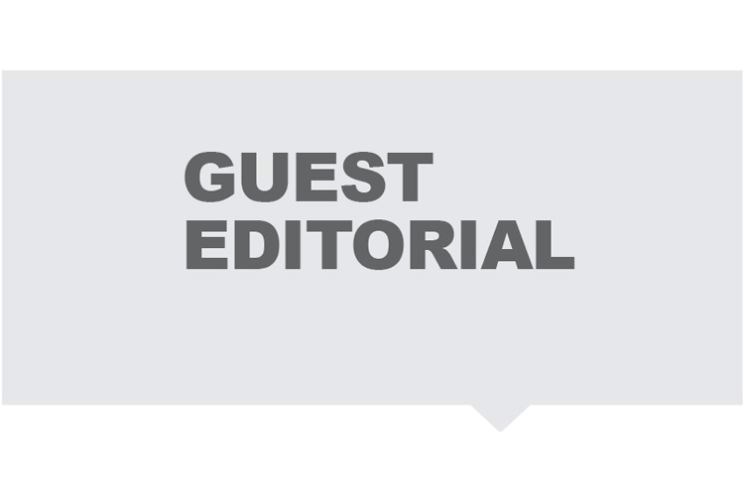I am not a "fighter" because I survived Hodgkin's lymphoma at 19. I am lucky among the unlucky.
In the face of serious illness, especially cancer, we immediately declare patients as "fighters," or talk about "winning" or "losing" the battle with the disease. That stock phrasing shows up in news headlines and charity campaigns; it's spoken by politicians, celebrities and well-meaning acquaintances alike. Each person has the right to describe their experience of their disease as they see fit, but it often feels impossible to avoid terms like "attack," "invade," and "fight," which are so deeply embedded in cancer culture.
For me, military language was a way for the people around me to evade the complex realities that accompanied my diagnosis. It put the gray areas of living with cancer - the physical anguish and the existential uncertainty - into stark, confrontational terms. That vocabulary stamped me as brave and heroic when I felt most weak and defenseless. I was convinced that I would let everybody down.
When news of my diagnosis broke out, my community forgot I was the same person. They saw only illness and it showed in the way they spoke to me. They tried to console me with encouragement.
One family friend confided, "I'm close with a woman who had a breast growth and worked full time during treatment, didn't even lose her hair."
A classmate offered: "I read about this man who cured his inoperable malignancy on his own. Poof, gone one day to the next."
Within days, I had dropped out of college and moved home to get chemotherapy full-time; my eyelashes and eyebrows fell out. I couldn't measure up to these cancer prodigies.
But I did the best I could to muster the energy and composure that these words demanded of me. I tried to hide the atrocities of my daily life from the well-wishers who seemed unable to accept life's impermanence with me. I hid my IV pole in my bedroom closet, along with a bag of pill bottles and the needles I used to give myself shots of white blood cells. Despite my best efforts, my basic presence, a walking reminder of death, could darken the mood in the room. I lifted a hood over my cancer tell - a shiny head - exchanged the word "cancer" for "sick" and shoved down my anxiety to appear put-together.
People wanted me to be the face of cancer - upbeat and optimistic, despite my suffering - while lymphoma acted like a tornado in my life, tearing through any normalcy. In others' eyes, my diagnosis had put me on the fast track to sainthood, but on the inside, I was an angst-filled teenager, feeling singled out and misunderstood. I didn't know how to express how others' vocabulary affected me. Eventually, my dad had to act as a gatekeeper, politely telling friends I wasn't up for visitors. My mounting isolation lengthened the road to recovery.
When a fellow patient died, people would say "she lost her battle, but you'll win yours." They thought that this metaphor would uplift me. But the implication that someone else died because they had, in some way, failed, or not been persistent enough to survive, put more pressure on my own health.
The only war raging on was the one between my doctors and my lymphoma. My oncologists ordered chemo, which coursed through my veins to combat the tumour growing on my heart and lungs. Tumour vs. chemo. I was a body stuck in the middle.
After my course of treatment was finished, my parents threw a dinner party, inviting family friends who made us weekly meals and drove me to chemo, through blizzards, in their four-wheel drives. I wanted our loved ones to enjoy their sense of relief, but I didn't understand why I was the focus of celebration.
Everything had happened to me. Unlike a soldier given an external enemy, mine was internal - when it came down to it, the enemy was me. I was to blame for my family's unrelenting fear and sleepless nights. Every congratulatory "you won the battle" just reminded me of what I'd really, privately won: post-traumatic stress, agoraphobia and addiction to morphine. I didn't feel victorious. Now, I had to piece my life together, wracked with guilt over why I'd lived, while others - who I'd been sure would survive - hadn't.
Yet despite this experience, when I was in remission and learned my friend was diagnosed with leukemia, I fell back on the euphemistic language I'd rejected. I rushed to the hospital to spend time with her. Her morale was low; she was upset at her lack of freedom. "Nurses walk in and out, these IVs are stuck to me, there's no privacy," she said. She asked if I knew anyone with the disease. I said yes and then clammed up. I didn't want to divulge that he'd died.
Reading my expression, my friend told me, "Alex, I know people die from what I have. We can say it out loud." Even as a survivor, I'd fallen into the pattern of trying to shield her, through language, from the dangers already inside her body. From that moment on, we had an understanding: no tiptoeing allowed, even with a difficult topic. That understanding bonded us forever.
What we both craved most during our treatment was openness.
We didn't want people to hold us up as brave warriors; we wanted them to face the discomfort with us. The sick and the healthy are on the same side - all scared of the same malady.
But the destructiveness of cancer can't be glossed over with cliches.
-- Alex Dvorak, Washington Post



